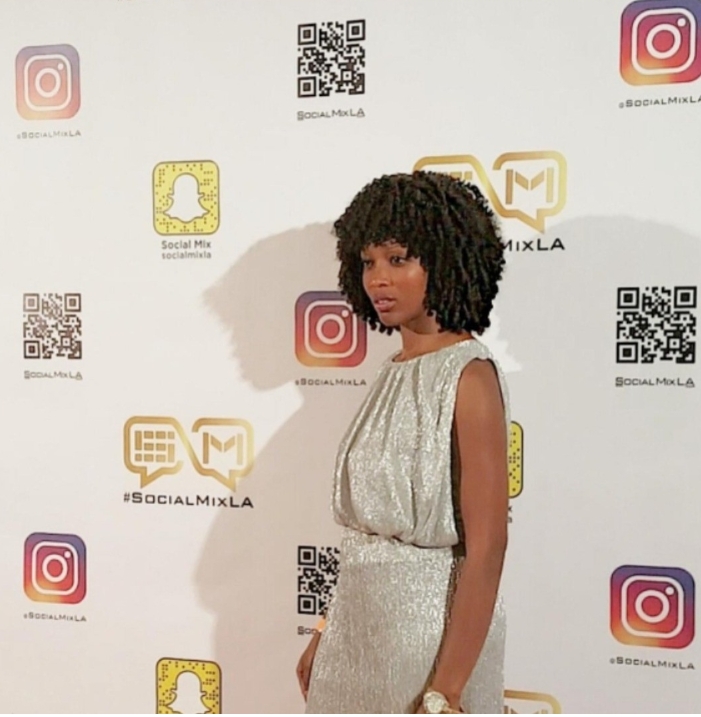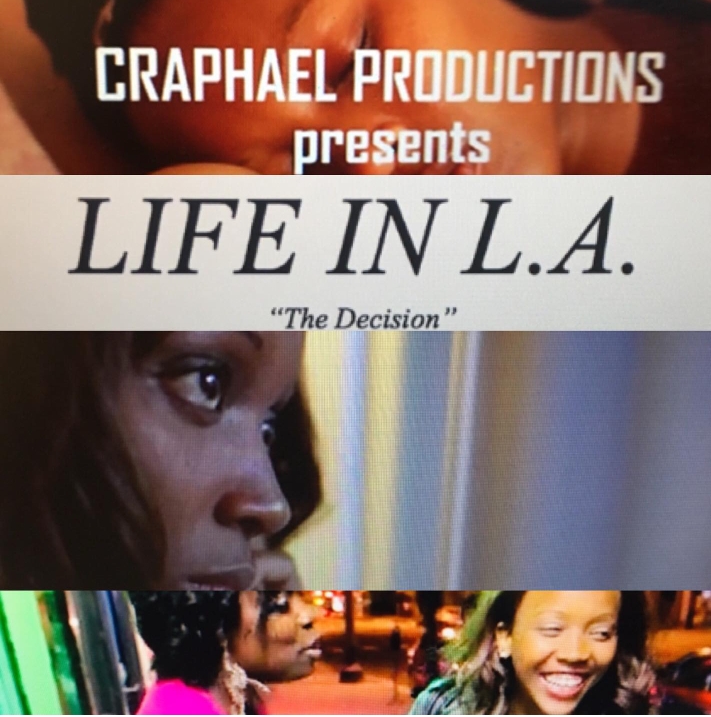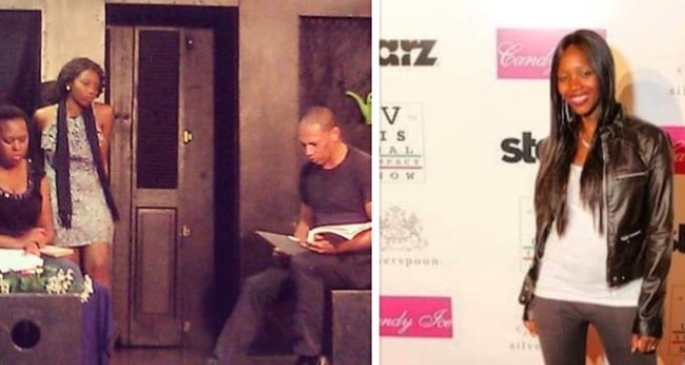Welcome to another edition of our series on inspiring artists. Today, we have a special guest: Cassandra Raphael. Raphael’s journey began with theater in Boston and has now taken her to the vibrant world of film in Los Angeles. Her experiences encompass working with renowned playwrights, self-producing her own film, and shaping scripts influenced by her time as a teacher. Through her creative voyage, she has gathered a wealth of insights, each illuminating a different facet of her growth as an artist. As we delve into her journey, we hope you find inspiration and a fresh perspective on the creative process.



HB: Your journey started with Theater in Boston and took you to Film in Los Angeles. Could you elaborate on the contrast between the theater and film scenes?
Cassandra Raphael: Theater is a lot different than film in many ways. In theater, you have weeks of rehearsals then you perform from beginning to end in front of an audience. In film, you may have only one or two days of rehearsals, or no rehearsals, and you film out of order. The first scene you film could be the last scene in the film. There is also not a full audience until the film is completed and you’re able to watch the film with the audience
HB: Contrast of the creative energy between the two cities and how that has shaped you as an artist?
Cassandra Raphael: Boston and LA are very different. One of the differences is that I can go on two or three auditions in a week in Boston and I know I will book one of those auditions. In LA, I can go on two or three auditions a week for months before I would book. This is because there are many more actors in Los Angeles who are all going after the same jobs. Another difference between Boston and LA is that there are way more opportunities for training. There are many places to go to for your acting tools such as self-tape locations, headshot photographers, demo reel services, etc. It’s a lot more convenient setting up shop in LA because there are so many options. Another difference is that there are many more opportunities in LA. This means the creative energy is higher. The industry is larger in Los Angeles so the community is larger as well. Boston is a small market so there are fewer opportunities and less of a creative community.
HB: You have mentioned working with renowned playwright Ed Billions and other major theater companies. Can you share some of the most important lessons you learned from those experiences?
Cassandra Raphael: One of the lessons I have learned working with Ed Bullins is to try not to write too many characters in your play. This is because you don’t want to have to worry about depending on too many actors to show up in case there is a situation. Another lesson Ed Bullins taught me is to write every day. This is how you grow your skills. When it comes to writer’s block, his solution was to write everything that came to mind then edit after. What I learned working at the Huntington Theatre was not to skimp on the set. I also learned to include classic plays in the season. The classic plays usually were the ones to have sold-out shows. Every so often, they would put up plays by a first-time playwright. When the play was a hit, it would create an opportunity for the playwright to have more of their plays produced with the company.
HB: Creating your first film “Life in L.A.” was a considerable risk, given that you invested all your savings into it. What inspired you to take this leap of faith, and what did you learn from this experience?
Cassandra Raphael: The reason why I was inspired to take a leap of faith in life in LA was because of what I learned at a Hollywood film festival. The director, Bill Duke, was there and he said in a seminar, “Don’t depend on auditions for roles. No one is forcing you to be an actor, you can leave at any time, but also know how to create.” Bill Duke made me understand that it would be a challenge to consistently land acting jobs and it’s important to empower yourself with the ability to produce projects. I then started reading film books with the notion that I may go to film school. Most of the lessons from the books were telling me the best way to learn to make a film, is to make a film and apply the lessons in your next film. It was almost the same lesson I learned from Ed Bullins about building your skills in writing by writing. So I said I can use my resources to go to film school or make my first short film. I decided to make my first short film. I wrote the script, then I assembled the cast and crew. The film was then edited and ready to screen at festivals. It was well received. I decided I would continue on the path of making films while continuing to find acting opportunities. I learned that I love making films. I love the process of the script being on a screen and everything that comes with it. I also learned that making films can be expensive and that for every film it’s important to have a budget that is twice as much as what you will need to make the film. For example, if the film is going to cost $50,000, have $100,000 reserved. This is to cover if things go over and also to cover film festival fees, sales rep fees, and anything else that may come up in post-production. One of the main reasons why independent films do not get completed, or that it takes years for completion, usually has to do with complexities with the budget. I also learned while there are many people who do not use their own money to make their films, I prefer to use my own resources.
HB: You transitioned from being a teacher to becoming a full-time artist. How have your teaching experiences influenced your work in film and theater?
Cassandra Raphael: My teaching experience influenced my work in film and theater because it influences my writing. “A Broken Chain”, which is a feature film that I wrote, was heavily inspired by my work as a teacher.
HB: Your first feature film, “A Broken Chain,” combines your teaching experiences with your personal values. Can you explain how these elements interact within the film?
Cassandra Raphael: When I was a teacher, I worked in different school districts, so I learned about the disparities in education. “A Broken Chain” is about a mom who loves her children so much that she is willing to do whatever it takes for them to have a quality education. She was not born on the so-called right side of town, but she does not believe that class should interfere with a child’s right to an adequate school. I firmly believe that every child should be taught in the best schools. I believe every child should have a chance to learn in the best environment. I don’t think it’s a child’s fault where they live and I don’t think they should be punished for that with low-quality schools. Education is one of the best ways to a bright future and the present-day quality of the schools needs to be the best possible.
HB: You’ve expressed your ambitions to become a successful filmmaker, actress, and published writer. Can you share your vision of success in these areas?
Cassandra Raphael: I would like my film to receive distribution and have mass appeal. This will make future distribution go more smoothly and generate future budgets for the next film. For acting, I would like to book roles in projects that resonate with people. I have written short stories, poetry, and essays that I would like to get published.
HB: Looking ahead, what upcoming projects or goals are you most excited about, and why?
Cassandra Raphael: I’m most excited about finishing “A Broken Chain” and having it screened in front of an audience. I’m excited about writing my second feature film and my play. I’m also excited about producing my play. The reason for all of it is because it satisfies my desire for artistic expression.



Our conversation with Cassandra Raphael unveils the many layers of an artist’s journey – the challenges and triumphs, the risks and rewards, and the ongoing process of learning and growth. Raphael’s multifaceted career, from her early roots in theater to her current focus on film, and her simultaneous pursuit of writing offer a testament to the resilience and tenacity of artists. Her experiences underscore the importance of creative expression and reinforce the belief that the path to success is often unconventional. As we conclude, we hope Raphael’s story has not only entertained but also inspired and empowered aspiring artists, reminding us all to persist in our passion and make the most of every opportunity.
#CassandraRaphaelJourney 🎭 #BostonToLA 🌆 #TheaterToFilm 🎞️ #ActingLife 🎬 #PlaywrightLessons 📖 #RiskTaker 🎲 #IndependentFilmmaker 📽️ #FilmFestivals 🎥 #LifeInLA 🌴 #AudiotionGrind 📢 #CreativityUnleashed 🌟 #WomenInFilm 🙋♀️ #BreakingBoundaries ⛏️ #BillDukeWisdom 👨🎓 #EdBullinsMentorship 👨🏫 #ArtisticExpression 🖌️ #ABrokenChainMovie 🔗 #TeachingInfluences 🍎 #EducationEquality ✏️ #FilmDistributionDreams 🎦